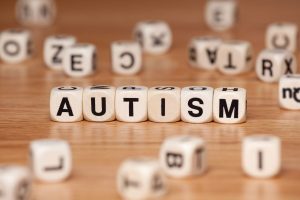The Ultimate Guide to Autism Cure: 7 Proven Facts You Must Know
Autism Cure: Exploring the Myths and Realities
Autism Spectrum Disorder (ASD) is a complex neurodevelopmental condition characterized by challenges in social interaction, communication, and repetitive behaviors. According to the Centers for Disease Control and Prevention (CDC), about 1 in 36 children in the United States is diagnosed with ASD, making it a significant public health issue. With such prevalence, many are left wondering: Is there an Autism Cure? The answer is far from straightforward, and it’s often surrounded by myths, misunderstandings, and ongoing debates.

Understanding Autism and the Search for an Autism Cure
Autism is known as a “spectrum” disorder because it manifests in a wide range of symptoms and severity. Some individuals with autism may require significant support in their daily lives, while others can live independently and excel in various fields. This diversity within the spectrum is part of what makes autism so challenging to define, understand, and, as some might hope, “cure.”
It’s crucial to recognize that autism is not a disease in the traditional sense. Rather, it is a neurodevelopmental condition that shapes how a person perceives and interacts with the world. The idea of an Autism Cure, therefore, is not as simple as curing an infection or a broken bone. Autism is intricately linked to the brain’s wiring and development, which makes the concept of a cure much more complex.
The Myth of an Autism Cure: Debunking Misconceptions
The notion of an Autism Cure has been a controversial topic for years. Various organizations, researchers, and even parents have explored or promoted different “cures” for autism, ranging from dietary changes and detoxification therapies to stem cell treatments and alternative medicines. However, none of these approaches have been scientifically proven to cure autism.
One of the most pervasive myths is that certain diets or supplements can cure autism. While some children with autism may have food sensitivities or gastrointestinal issues that benefit from dietary adjustments, there is no evidence to support the idea that diet alone can cure autism. Similarly, detoxification therapies that claim to remove toxins from the body have not been shown to have any impact on autism symptoms and can sometimes be harmful. For more on this topic, visit Delhi Mind Clinic.
Why There Is No Autism Cure: Understanding the Science
The search for an Autism Cure has also led to the rise of pseudoscientific treatments, many of which prey on the hopes and fears of families affected by autism. It’s essential for parents and caregivers to approach these treatments with skepticism and rely on evidence-based practices. The focus should be on therapies and interventions that improve quality of life, rather than chasing after a non-existent cure.
Evidence-Based Interventions Over an Autism Cure
While there is no Autism Cure, there are numerous evidence-based interventions that can significantly improve the lives of individuals with autism. Early intervention, in particular, has been shown to be highly effective in helping children with autism develop critical skills. You can learn more about effective interventions on our Early Intervention Programs page.
Applied Behavior Analysis (ABA) is one of the most well-known and widely used interventions for autism. ABA focuses on teaching positive behaviors and reducing negative ones through reinforcement techniques. It can be tailored to each individual’s needs and has been proven to improve communication, social skills, and academic performance. Explore our detailed guide on Applied Behavior Analysis (ABA) Therapy for more insights.
Speech therapy, occupational therapy, and social skills training are other valuable interventions that can help individuals with autism navigate the challenges they face. These therapies aim to enhance communication, sensory processing, and daily living skills, allowing individuals with autism to lead more independent and fulfilling lives.
Medications can also play a role in managing certain symptoms associated with autism, such as anxiety, attention deficits, or aggressive behavior. However, it’s important to note that these medications do not cure autism; they simply help manage specific symptoms.
Acceptance Over Autism Cure: Embracing Neurodiversity
Rather than focusing on an Autism Cure, many experts and advocates emphasize the importance of acceptance and support for individuals with autism. The neurodiversity movement, which advocates for the recognition and respect of neurological differences, including autism, has gained momentum in recent years. This perspective argues that autism is not something to be cured but rather a different way of experiencing the world that should be embraced.
Supporting individuals with autism involves creating environments that accommodate their unique needs and strengths. This includes inclusive education, workplace accommodations, and community support systems that promote independence and social inclusion.
Families and caregivers also play a crucial role in providing support. Parenting a child with autism can be challenging, but with the right resources, education, and community, parents can help their children thrive. Support groups, counseling, and respite care are valuable resources for families navigating the complexities of autism. For further guidance, check out our article on Parenting a Child with Autism.
Conclusion: The Reality Behind the Autism Cure Debate
The idea of an Autism Cure is more of a myth than a reality. Autism is a lifelong condition that shapes an individual’s experiences and interactions with the world. Rather than seeking a cure, the focus should be on providing evidence-based interventions that improve quality of life and promote independence. Acceptance, understanding, and support are key to helping individuals with autism lead fulfilling lives.
As research continues, our understanding of autism will evolve, and new therapies and interventions may emerge. However, the goal should always be to support and empower individuals with autism, recognizing their unique strengths and contributions to society. Instead of seeking an Autism Cure, we should aim to cure the misunderstandings and misconceptions surrounding it, fostering a world that embraces neurodiversity.